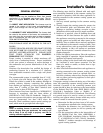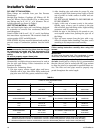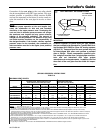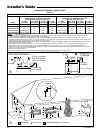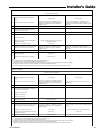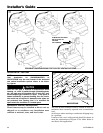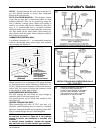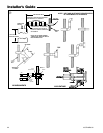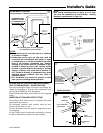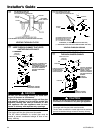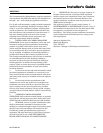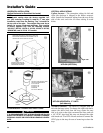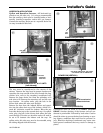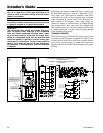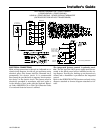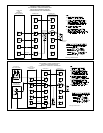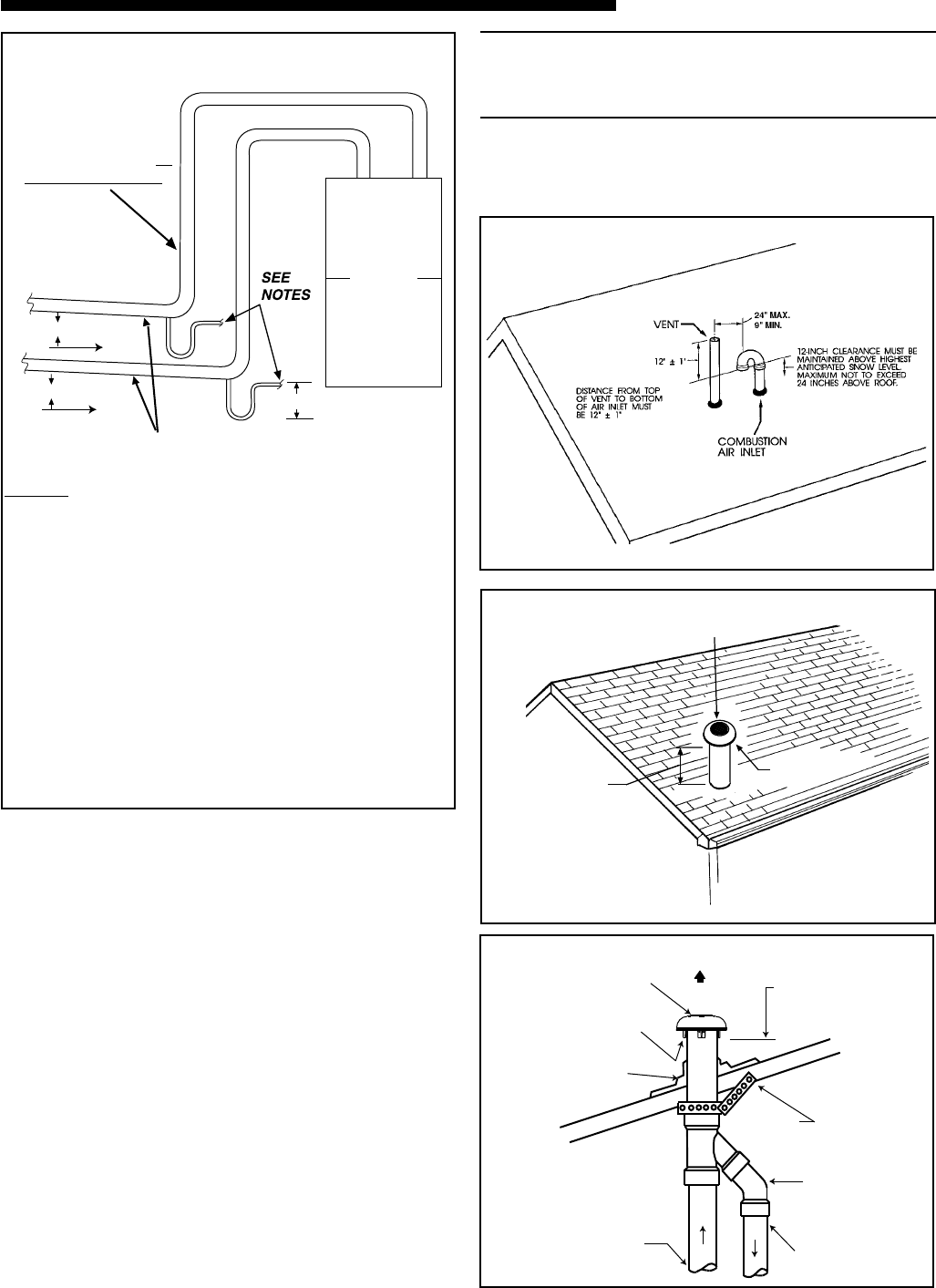
18-CD19D6-32 23
Installer’s Guide
VENTING ROUTED THROUGH A MASONRY CHIMNEY
VENT FITTING MATERIAL – STAINLESS STEEL
Gas and liquid tight single wall metal vent fitting, de-
signed for resistance to corrosive flue condensate such
as Type 29-4C MUST be used throughout.
These fittings and fitting accessories are to be supplied
locally.
DIRECTION OF STAINLESS STEEL FITTING
All stainless steel fitting must be installed with male
end towards the furnace.
All horizontal stainless steel sections must be posi-
tioned with the seam on top.
All long horizontal sections must be supported to pre-
vent sagging.
All pipe joints must be fastened and sealed to prevent
escape of combustion products into the building.
NOTE:
Both venting methods shown in Figure 40 & 42 must
also have the combustion air inlet installed - meeting
dimension requirements of Figure 36.
n
MAINTAIN 12 IN.
(18 IN. FOR CANADA)
MINIMUM CLEARANCE
ABOVE HIGHEST
ANTICIPATED SNOW
LEVEL. MAXIMUM OF
24 IN. ABOVE ROOF.
VENT
COMBUSTION
AIR
m
BAYAIR30AVENTA
REMOVE RIBS
FROM CAP
COMBUSTION
AIR
ROOF FLASHING BOOT
(FIELD SUPPLIED)
COMBUSTION
AIR
VENT
ELBOW
(FIELD SUPPLIED)
MAINTAIN 12 IN.
(18 IN. FOR CANADA)
MINIMUM CLEARANCE
ABOVE HIGHEST
ANTICIPATED SNOW
LEVEL. MAXIMUM OF
24 IN. ABOVE ROOF
SUPPORT
(FIELD SUPPLIED)
VENT
,
6" Min.
40 Inch
Upflow or
Downflow
Furnace
Slope 1/4" per ft.
Slope 1/4" per ft.
All horizontal pipes must be supported
at a maximum of 3 foot intervals
DOWNWARD VENTING
Furnace may be in vertical or horizontal configuration.
b
NOTES:
A) Condensate trap for vent pipe must be a minimum
of 6 inches in height.
B) Condensate trap for vent and inlet pipe must be
connected into a condensate drain pump; an open
or vented drain; or it can be connected to the outlet
hose of the furnace's condensate trap. Outdoor
draining of the furnace and coil condensate is per-
missible if allowed by local codes. Caution should
be taken to prevent drains from freezing or causing
slippery conditions that could lead to personal in-
jury. Excessive draining of condensate may cause
saturated ground conditions that may result in
damage to plants.
C) The condensate trap should be primed at initial
start up prior to heating season operation.
DOWNWARD VENT
LENGTH IS LIMITED
TO A MAXIMUM OF
15
EQUIVALENT FEET.



